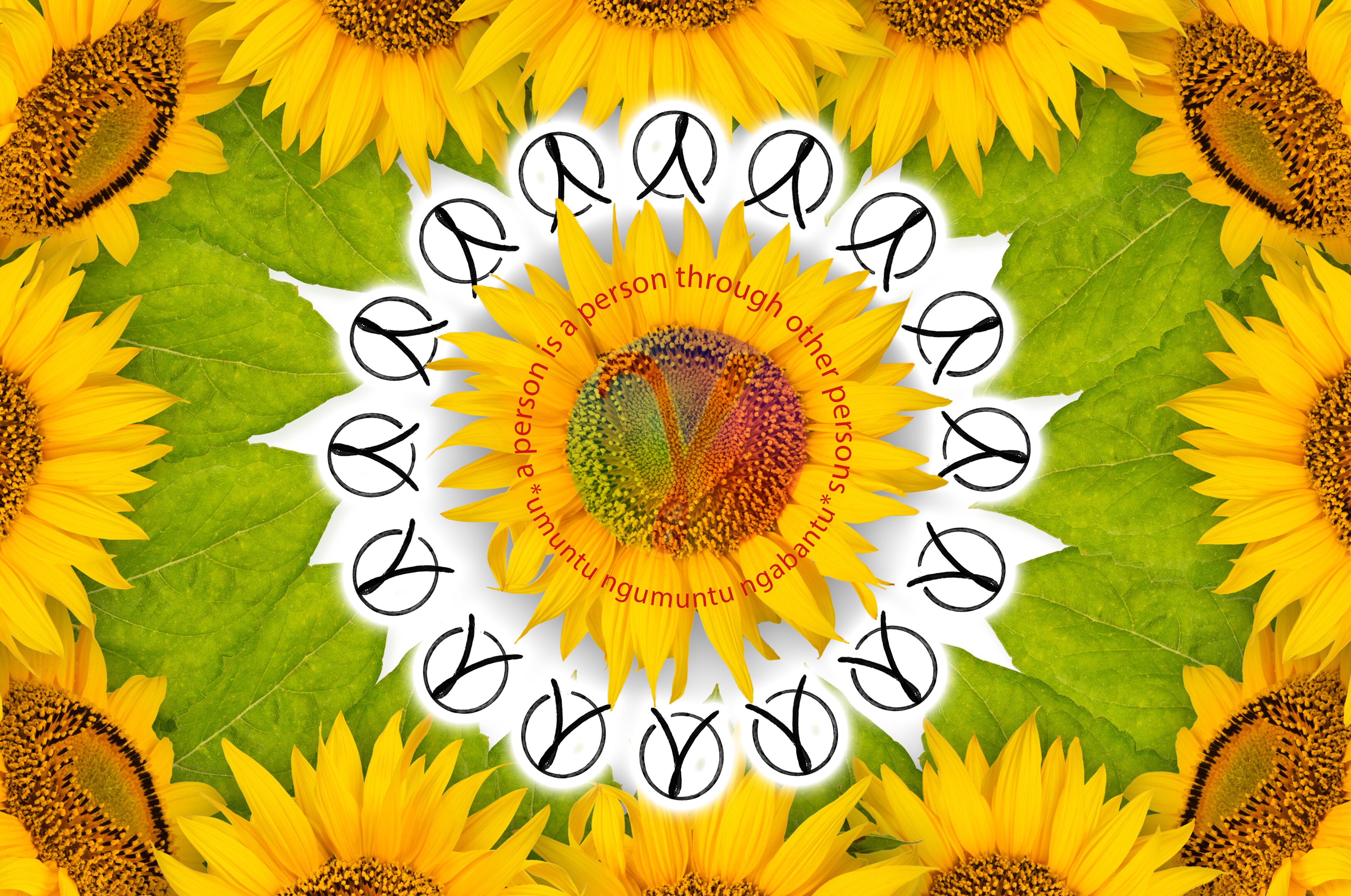
It may seem that the Gamma Tao is inspired only by Western and Eastern traditions. The two main visible elements γ (gamma) and 道 (tao/dao) also contribute to this misconception. Instead the whole idea behind the Gamma is to create an inclusive, universal way of life. Just like there are categories for “world music” and “world cinema”, the Gamma Tao is a fusion of “world philosophy”.
Its mission is to pick the best from all wisdom traditions and leave local customs where they are. Local customs are often confused with the key ideas of wisdom traditions themselves. Local customs are part of cultural identity. As such they have limited universal value. In fact, they may even damage the universal appeal of a wisdom tradition. Local customs are often backward looking. The Gamma project lives in the present moment and is directed towards the future.
An important source of inspiration for the Gamma Tao that is neither from the East nor the West, is Ubuntu.
A central concept within Ubuntu and African philosophy in general is complementarity. As human beings we all need each other. Alone we are practically nobodies.
This is a key message of Ubuntu:
Umuntu Ngumuntu Ngabantu (A person is a person through other persons).
Complementarity also means that individual qualities are appreciated, but always seen as part of a greater whole.
Nelson Mandela formulated it like this:
In Africa there is a concept known as ‘ubuntu’ – the profound sense that we are human only through the humanity of others; that if we are to accomplish anything in this world it will in equal measure be due to the work and achievement of others.
Recently, I was lucky to attend a public talk of Mogobe Ramose. He has written one of the most influential books on Ubuntu: African philosophy through Ubuntu.
There are not many books on Ubuntu. It is a living, oral tradition. Ubuntu is not based on ancient written texts and therefore often not taken very seriously by philosophers or theologians used to scriptural traditions.
Ubuntu is a practical, spiritual approach to life. The word Ubuntu consists of two parts: the prefix ubu- and the stem ntu. Ubu refers to an “enveloped” potential in the universe and –ntu to its continuously developing, concrete manifestations.
Ramose talks of a stream of existence, similar to the ancient Greek concept of Panta Rhei (“everything moves”). This stream of life is like music, a dance of being that invites us all to participate. In North-Sotho, a Bantu language, there is also a saying Kosa ga e theeletswe o e duletse (You do not listen to music sitting down).
This music also leads to the desire for harmony that exists within communities inspired by Ubuntu. This harmony can only be achieved through the interplay of the emotional and rational intelligence of all participants.
In a kgotla, a community meeting or council, the search for consensus can be quite a lengthy process. Ramose quotes the saying Le leke la mo tlhakola pele a fetsa go nyela (Somebody’s anus should not be cleaned before he is done). It means that everyone should be heard, because even from nonsense something useful can be learned.
This practice of consensus may be easier in a village somewhere in Botswana than in our modern global village full of political bullshit. But the lesson remains. If we want to solve the problems of the world, we should start to really listen to each other. It all starts with an open mind.
Ubuntu can also teach us an holistic way to connect to the world. Its spirit of complementarity stretches out from the natural world, the land, the plants and animals to the generations before and after us. Within Ubuntu we have obligations to all.
So even though the focus of the Gamma Tao is on personal development, based on the idea that we can actually develop a wisdom mindset, the outcome should always transcend ourselves and our ego.
Ubuntu teaches us that we can only flourish together.